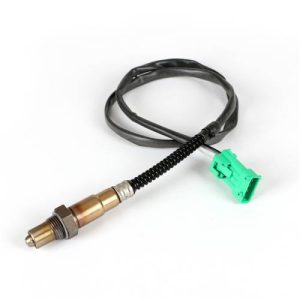Your cart is currently empty!
Signs that Indicate it's Time to Replace Your Automotive Oxygen Sensors
As a responsible car owner, it's important to keep an eye on the health of your vehicle. One of the key components that require regular maintenance is the oxygen sensor. Also known as the O2 sensor or lambda sensor, this device is responsible for monitoring the amount of oxygen in the exhaust gases and ensuring that the engine is running efficiently. Over time, the sensor can become damaged or worn out, which can lead to a range of problems. In this post, we'll look at some of the signs that indicate it's time to replace your automotive replacement oxygen sensors.
1. Decreased Fuel Efficiency
If you notice that your car's fuel efficiency has decreased, it could be a sign that your oxygen sensors are faulty. This is because a damaged sensor can cause the engine to run too rich or too lean, which can result in poor fuel economy.
2. Check Engine Light
The check engine light is a warning sign that should not be ignored. If your sensor is not working correctly, it can trigger the check engine light to come on. This could be due to a range of issues, so it's important to have your car inspected by a professional mechanic.
3. Rough Idling
If your car is idling roughly or stalling, it could be a sign that your oxygen sensors are not functioning correctly. This is because the sensor is responsible for regulating the air/fuel mixture, and if it's not working correctly, it can cause the engine to run poorly.
4. Failed Emissions Test
If your car fails an emissions test, it could be due to a faulty oxygen sensor. This is because the sensor plays a crucial role in reducing emissions by ensuring that the engine is running efficiently.
5. Bad Smell from Exhaust
If you notice a bad smell coming from your car's exhaust, it could be due to a damaged oxygen sensor. This is because the sensor helps to regulate the amount of fuel that's burned in the engine, and if it's not working correctly, it can cause unburned fuel to be released into the exhaust system.
6. Engine Misfires
If your engine is misfiring or hesitating, it could be a sign that your oxygen sensors are faulty. This is because the sensor helps to ensure that the engine is running smoothly, and if it's not working correctly, it can cause issues with combustion.
7. Poor Performance
If your car is not performing as well as it used to, it could be due to a faulty oxygen sensor. This is because the sensor plays a crucial role in ensuring that the engine is running efficiently and smoothly.
In conclusion, keeping an eye on the health of your oxygen sensors is crucial for maintaining the performance and efficiency of your car. If you notice any of these signs, it's important to have your vehicle inspected by a professional mechanic and replace any faulty sensors as soon as possible. By doing so, you can ensure that your car runs smoothly and efficiently for years to come.






Leave a Reply